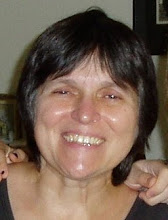The stranger the better
This counterintuitive idea was the theme of the sermon at the church I dropped in on yesterday because it was too nice to drive an hour to my meeting. Worshipping locally has several good things going for it, and yesterday the benefit was guest preacher Susan Brooks Thistlethwaite, president of Chicago Theological Seminary. Explaining and then applying the multilevel system of rabbinical interpretation used in reading the Hebrew Bible, she argued that an interpretation style that argues with the text makes us better equipped to deal with differences in general -- with diversity, with lack of agreement, with lack of commonality. We go beyond the literal and obvious and look more deeply that way. It's a big idea to pack into a Sunday morning homily -- more like Sunday school with a good teacher.
Monday, April 21, 2008
Thursday, April 17, 2008
Boy, do I wish I had written this
I cried with laughter after reading The Onion's "Oprah Launches Own Reality."
I cried with laughter after reading The Onion's "Oprah Launches Own Reality."
Monday, April 14, 2008
We have a deeply held desire
to not be dead. This according to ethicist Thomas E. Finucane at Johns Hopkins University School of Medicine. Dr. Finucane ought to know, since he is a geriatrician and so has undoubtedly seen how strongly humans cling to life. I heard him last week during a seminar about longevity put on by the Knight Center for Specialized Journalism . Life looks a lot better as we get closer to leaving it, was his wonderfully succinct point. This becomes easier to understand with age, of course. It also explains the stories I've heard from people waiting for (mostly) loved ones to die, a process that often takes a while as the light of life dims.
to not be dead. This according to ethicist Thomas E. Finucane at Johns Hopkins University School of Medicine. Dr. Finucane ought to know, since he is a geriatrician and so has undoubtedly seen how strongly humans cling to life. I heard him last week during a seminar about longevity put on by the Knight Center for Specialized Journalism . Life looks a lot better as we get closer to leaving it, was his wonderfully succinct point. This becomes easier to understand with age, of course. It also explains the stories I've heard from people waiting for (mostly) loved ones to die, a process that often takes a while as the light of life dims.
Tuesday, April 08, 2008
Watch your language
This week I'm at a Knight Center for Specialized Journalism seminar on aging. Or do you say longevity? How are we supposed to talk about old people? A number of speakers have talked about the inadequacy of the terms we use, usually "senior" or -- yikes -- "elderly." I've heard "pre-elderly," too. We in journalism lead and follow the culture with respect to language. We create trends and/or wake up to them. The aging we have always had with us, only pretty soon there will be more of them in this country as a percentage of the population (20 percent by 2025 will be over 65). A little word we unconsciously use about people who are older and doing things we don't normally associate with being old: ah, he's 82 and still playing virtuoso violin. The verbal culprit is still, because it bespeaks our values: we don't expect this to be happening when somebody is 82. Well, we are in the process of changing our expectations of what people who are older can do, because people who are older are also healthier than ever before. We shall see what they can still do. Thanks to Abigail Trafford, author of My Time and a veteran journalist, for this fine point about language.
This week I'm at a Knight Center for Specialized Journalism seminar on aging. Or do you say longevity? How are we supposed to talk about old people? A number of speakers have talked about the inadequacy of the terms we use, usually "senior" or -- yikes -- "elderly." I've heard "pre-elderly," too. We in journalism lead and follow the culture with respect to language. We create trends and/or wake up to them. The aging we have always had with us, only pretty soon there will be more of them in this country as a percentage of the population (20 percent by 2025 will be over 65). A little word we unconsciously use about people who are older and doing things we don't normally associate with being old: ah, he's 82 and still playing virtuoso violin. The verbal culprit is still, because it bespeaks our values: we don't expect this to be happening when somebody is 82. Well, we are in the process of changing our expectations of what people who are older can do, because people who are older are also healthier than ever before. We shall see what they can still do. Thanks to Abigail Trafford, author of My Time and a veteran journalist, for this fine point about language.
Subscribe to:
Comments (Atom)
